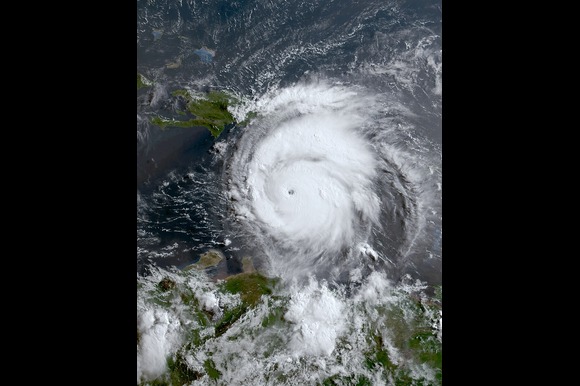People across Jamaica are preparing for the arrival of Hurricane Melissa, which is forecast to bring catastrophic flooding, destructive winds, and life-threatening storm surges to the Caribbean nation within hours.
The US-based National Hurricane Center (NHC) announced early Monday that Melissa had been upgraded to a Category Five hurricane, the most powerful level on the Saffir–Simpson scale.
Officials fear that Melissa—already responsible for at least four deaths on the island of Hispaniola—could become the strongest hurricane ever recorded in Jamaica’s history. The government has ordered mass evacuations in several areas, including parts of the capital Kingston, and placed the entire island under threat status.
Hurricane Nearing Jamaica with 160mph Winds
According to an NHC update issued at 12:00 GMT, Melissa was positioned about 135 miles (220 km) southwest of Kingston, with maximum sustained winds of 160 mph (260 km/h). Meteorologists warned that the storm could intensify even further over the next 12 to 24 hours.
If it continues on its projected path, the hurricane’s core is expected to pass near or directly over Jamaica late Monday or early Tuesday, before moving across southeastern Cuba on Tuesday night and then toward the southeastern Bahamas by Wednesday.
Forecasters have described Melissa as particularly dangerous due to its slow movement, which will likely result in exceptionally high rainfall totals across Jamaica and surrounding areas.
Up to 40 Inches of Rainfall and Life-Threatening Floods Expected
The NHC warned that as much as 40 inches (100 cm) of rain could fall in some regions of Jamaica over the next four days. The heavy rain, combined with powerful winds and storm surges, is expected to cause widespread destruction, especially in low-lying and coastal communities.
“Destructive winds and life-threatening storm surges are forecast to reach Jamaica overnight or early Tuesday,” the NHC said.
Evacuations Underway Across Jamaica
Prime Minister Andrew Holness has ordered the immediate evacuation of vulnerable communities throughout the island, urging residents to take the threat seriously.
Authorities have activated all 881 public shelters, ensuring displaced families have safe refuge as the hurricane approaches.
Desmond McKenzie, Jamaica’s Minister of Local Government, told local media that every available shelter had been opened and emergency teams were on high alert. “We are fully mobilized. Our priority is saving lives,” he said.
Officials have also appealed to people living in flood-prone or low-lying areas to move to higher ground before conditions deteriorate.
Hispaniola Already Reeling from Storm’s Impact
Before turning toward Jamaica, Hurricane Melissa tore through Hispaniola, the island shared by Haiti and the Dominican Republic, leaving a trail of destruction.
In Haiti, at least three people have died and hundreds of homes were flooded as torrential rainfall lashed several provinces. Emergency workers have been rescuing stranded residents from submerged homes and vehicles.
In the Dominican Republic, one fatality was also confirmed. Local media identified the victim as a 79-year-old man who was swept away by floodwaters in Santo Domingo, the capital.
Authorities reported that a 13-year-old boy remains missing after being carried off by strong ocean currents while swimming.
Rescue teams have saved several people trapped inside their cars by rapidly rising floodwaters, as emergency crews continue to respond to the widespread damage across the island.
Nation on Edge as Melissa Approaches
As Jamaica braces for impact, authorities continue to warn residents against complacency, urging them to follow evacuation orders and avoid coastal areas. The government has deployed additional emergency personnel, while hospitals and power utilities have activated contingency plans.
With forecasters warning that Melissa may intensify further, Jamaica faces a potentially historic natural disaster. Prime Minister Holness said the government was “doing everything possible to protect citizens,” but stressed that “the next 24 hours will be critical.”






